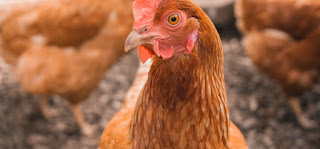When Ivan Karamazov says, "If there is no immortality, then everything is lawful," he means it to be shocking. The point is that without eternal punishment, there's really nothing to stop us from murdering people if we feel like it. But he forgets to listen to what he himself is saying, because the whole proposition depends on the word "if." His unspoken premise, of course, is that there is indeed no immortality--but, luckily, he only thinks that because he's being a stupid-face.
There's really no point in doing anything if it's not eternal. But here's the beautiful thing: if anything truly is eternal, then that means everything is eternal. Either nothing matters, or absolutely everything does. I've talked before about the care and craft that God, the Master Builder, puts into every molecule of this world. We in turn put care and craft into every detail of our daily lives, even if we often do it automatically, by sheer force of habit. (Force of habit's not always bad, after all.) When we throw on our clothes and go to work in the morning, we're building something.
The great medieval cathedral builders used to place a tiny gift at the top of the tallest steeple when construction was finished, a little present just for God. (That's also why we put on our best clothes for church: wrapping ourselves as presents for Jesus.) In Tomie de Paola's Legend of the Poinsettia, the heroine learns that every gift is beautiful because it is given, and the weeds she offers to Baby Jesus turn into magnificent flowers. Every weed, every pebble, that we offer to God is becoming a piece of a cathdral, a flowering city that we're building together. That may sound a bit trite, but that's because it's an image of truth, a furtive memory we all have in the back of our minds. The Plans of the Architect, which we glimpsed before we were born.
When we look back at our lives from the summit, we'll see we've been dragging ziggurats up massive slopes. Every hardship, a buckle in the harness. We spend our lives maneuvering titanic chunks of masonry--but unlike Sisyphus, our toil is not in vain. When we throw on our clothes and go to work in the morning, we're chiseling filigree into some nook of the Great Cathedral. Wasted work? There's no such thing. God loves it. And in the New Jerusalem, our friends will have an eternity to stumble across the little details that we ourselves have forgotten about and say, "Oh hey, that's cool." Our work, our work, our daily bread: we're building the New Jerusalem.


